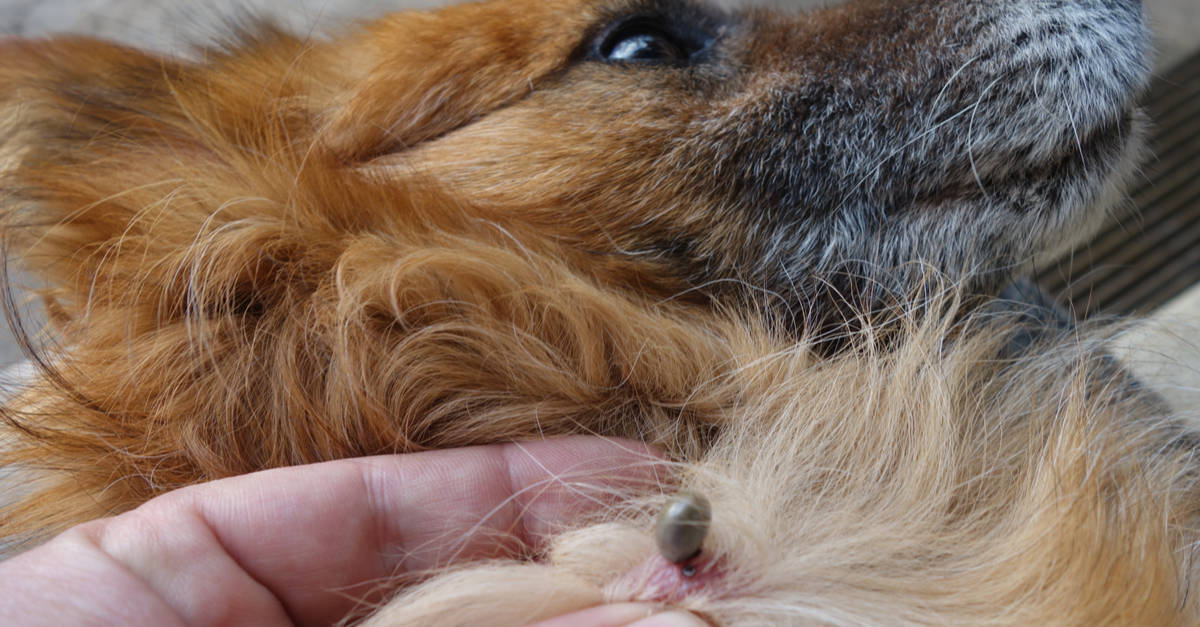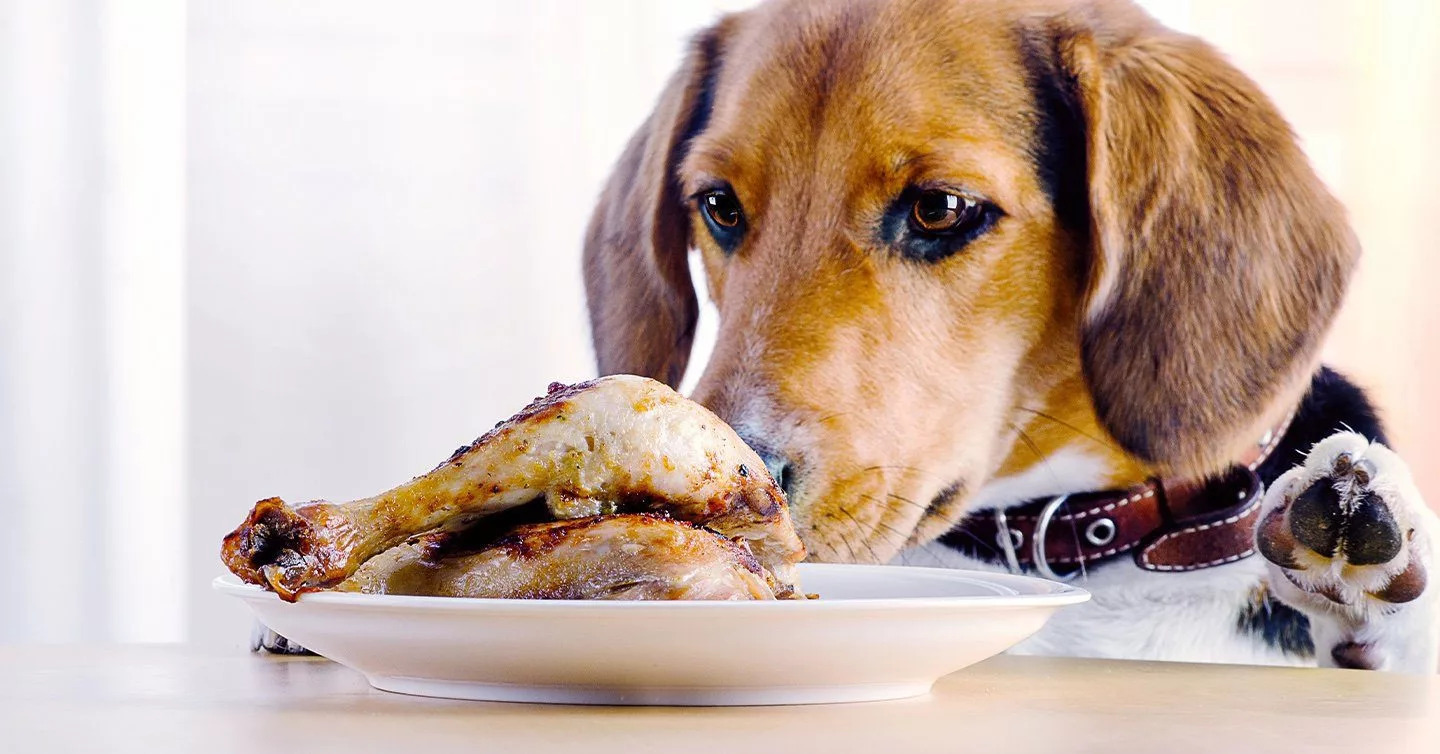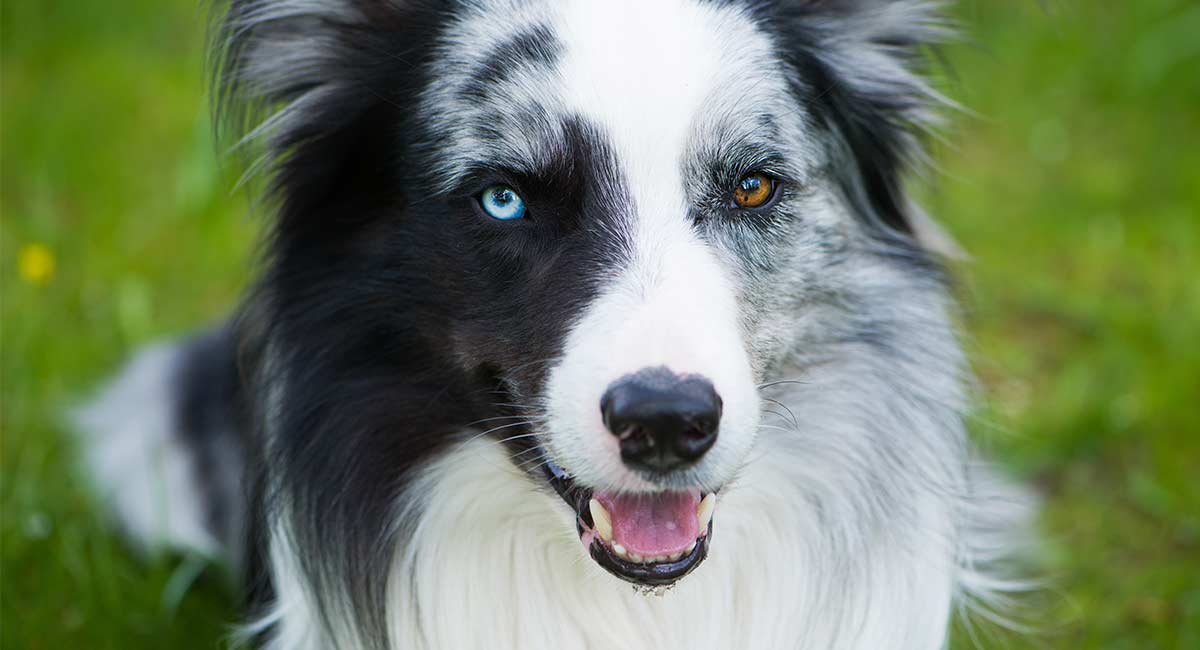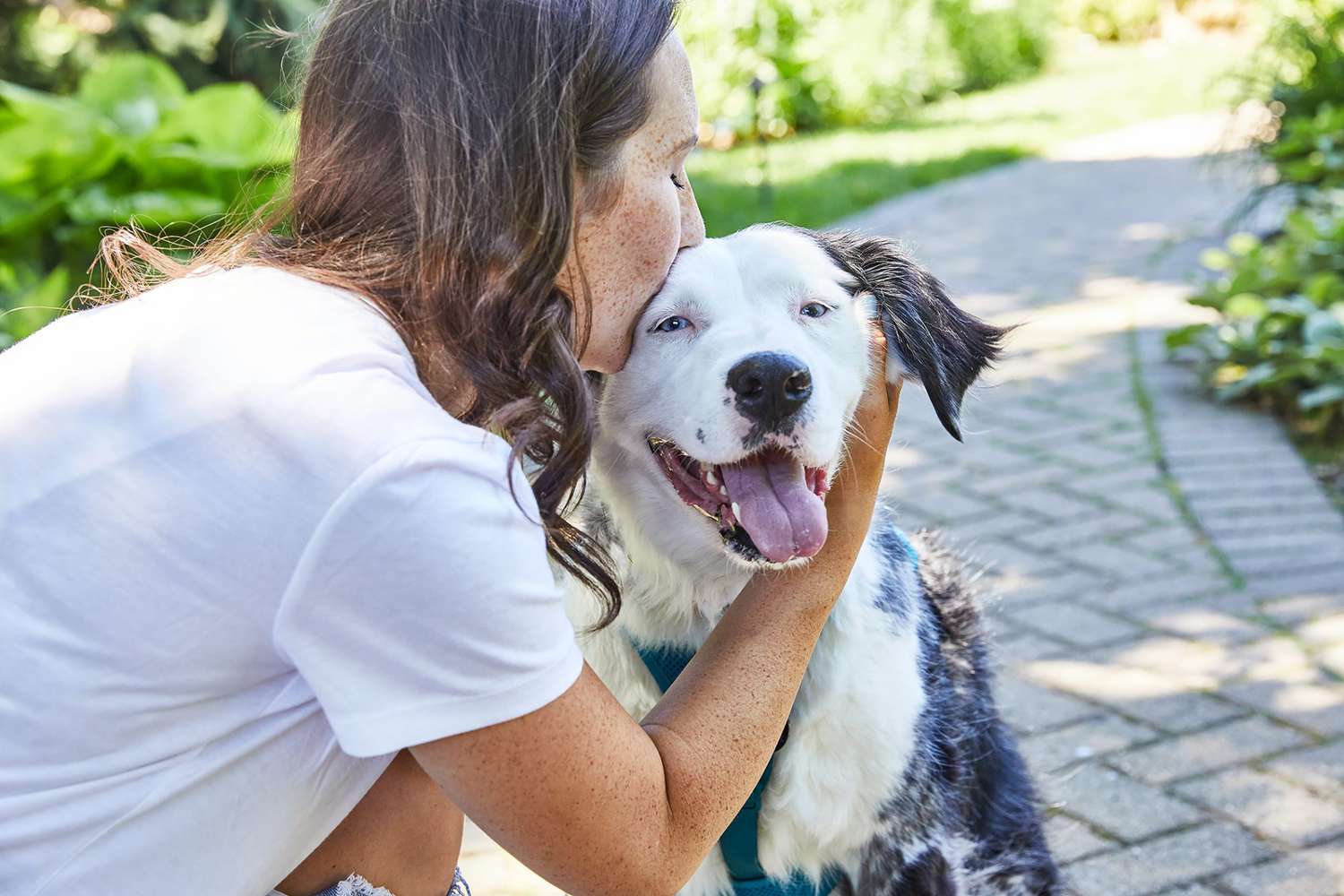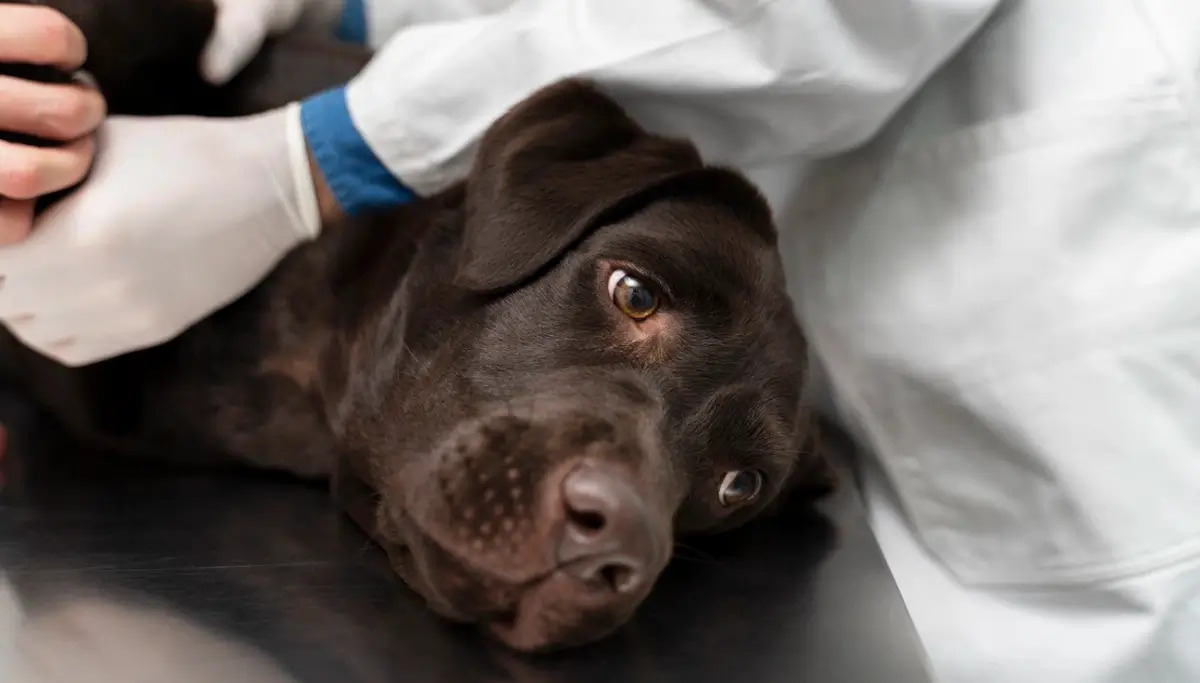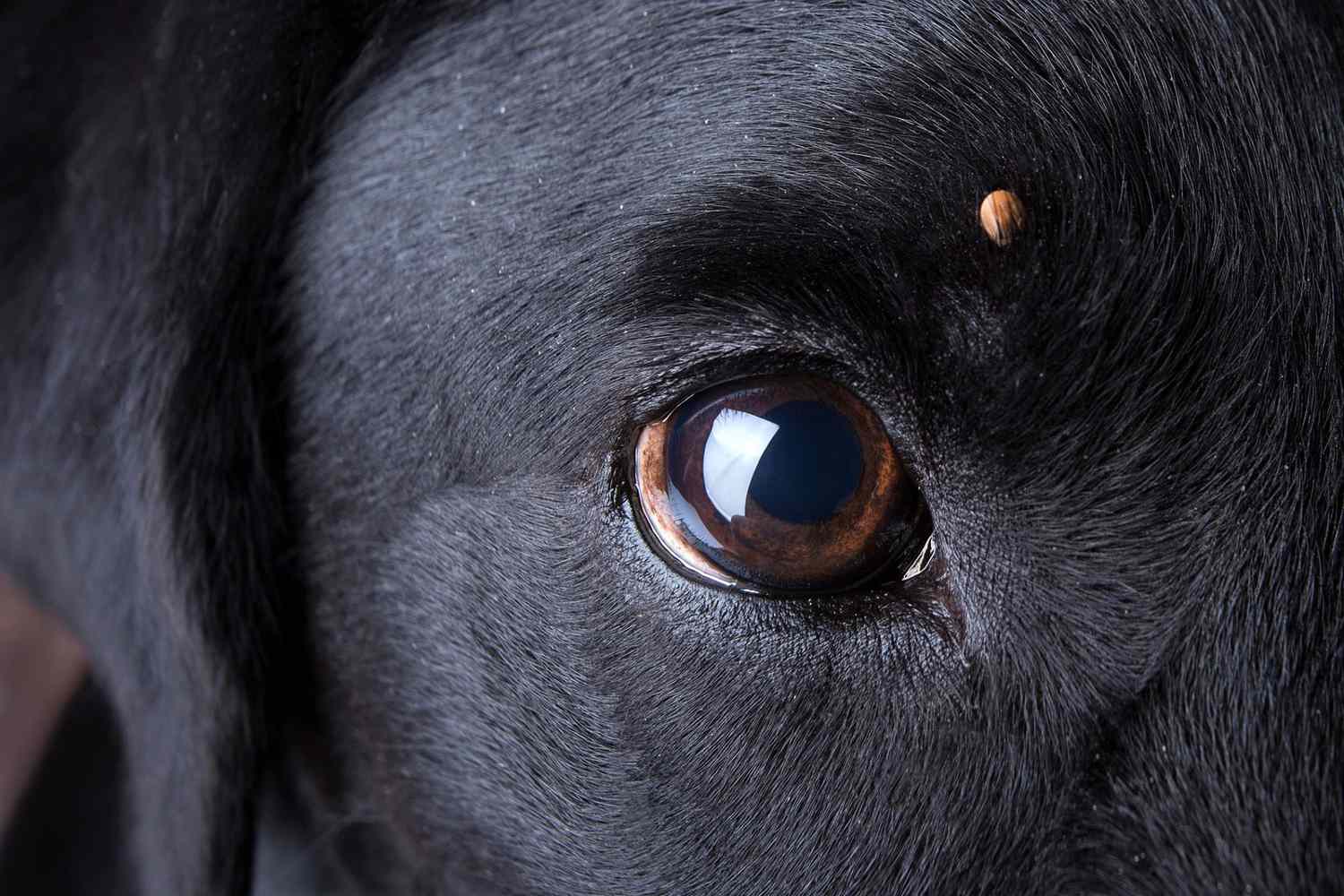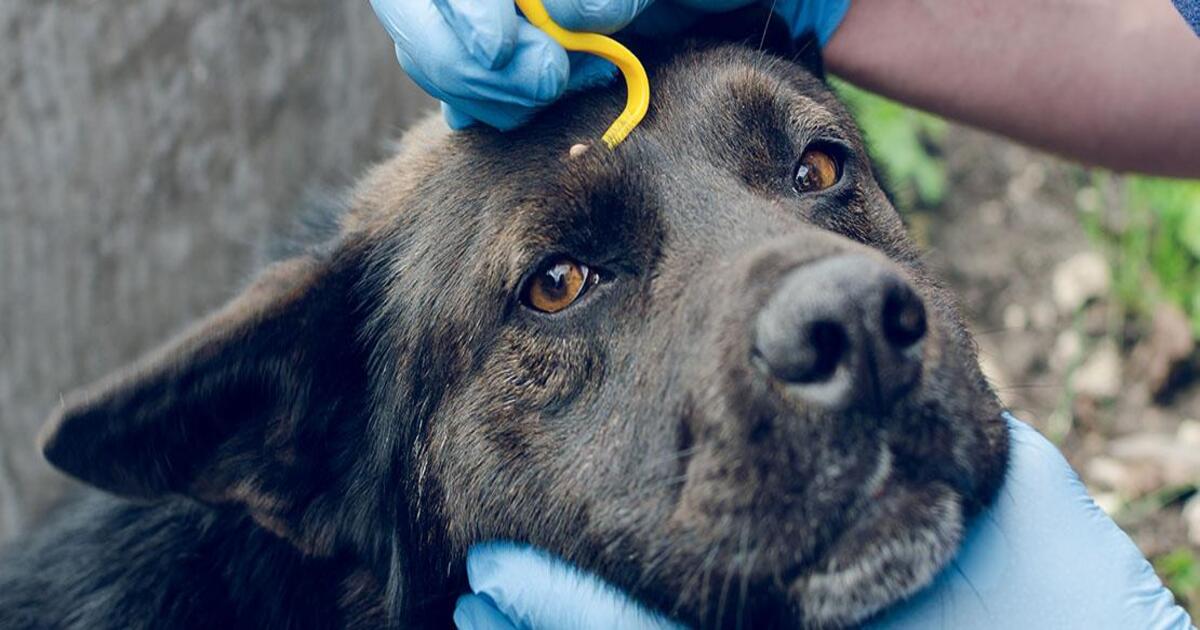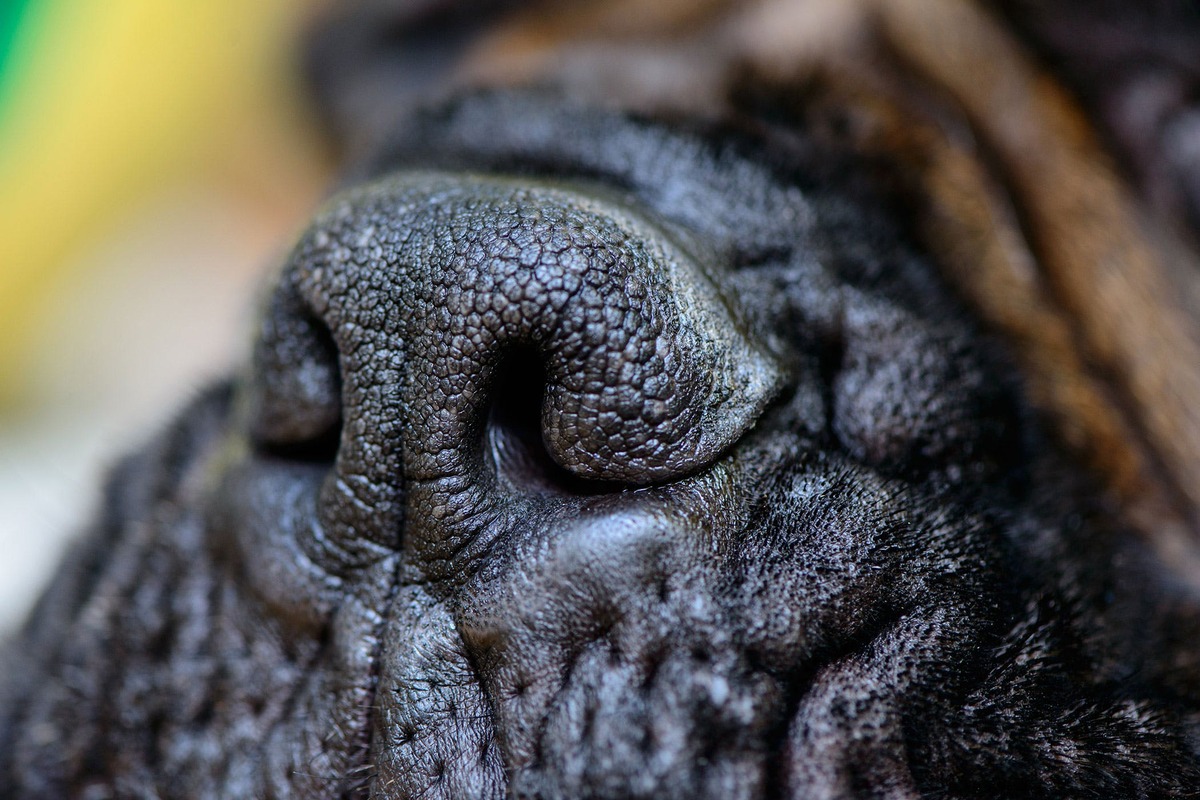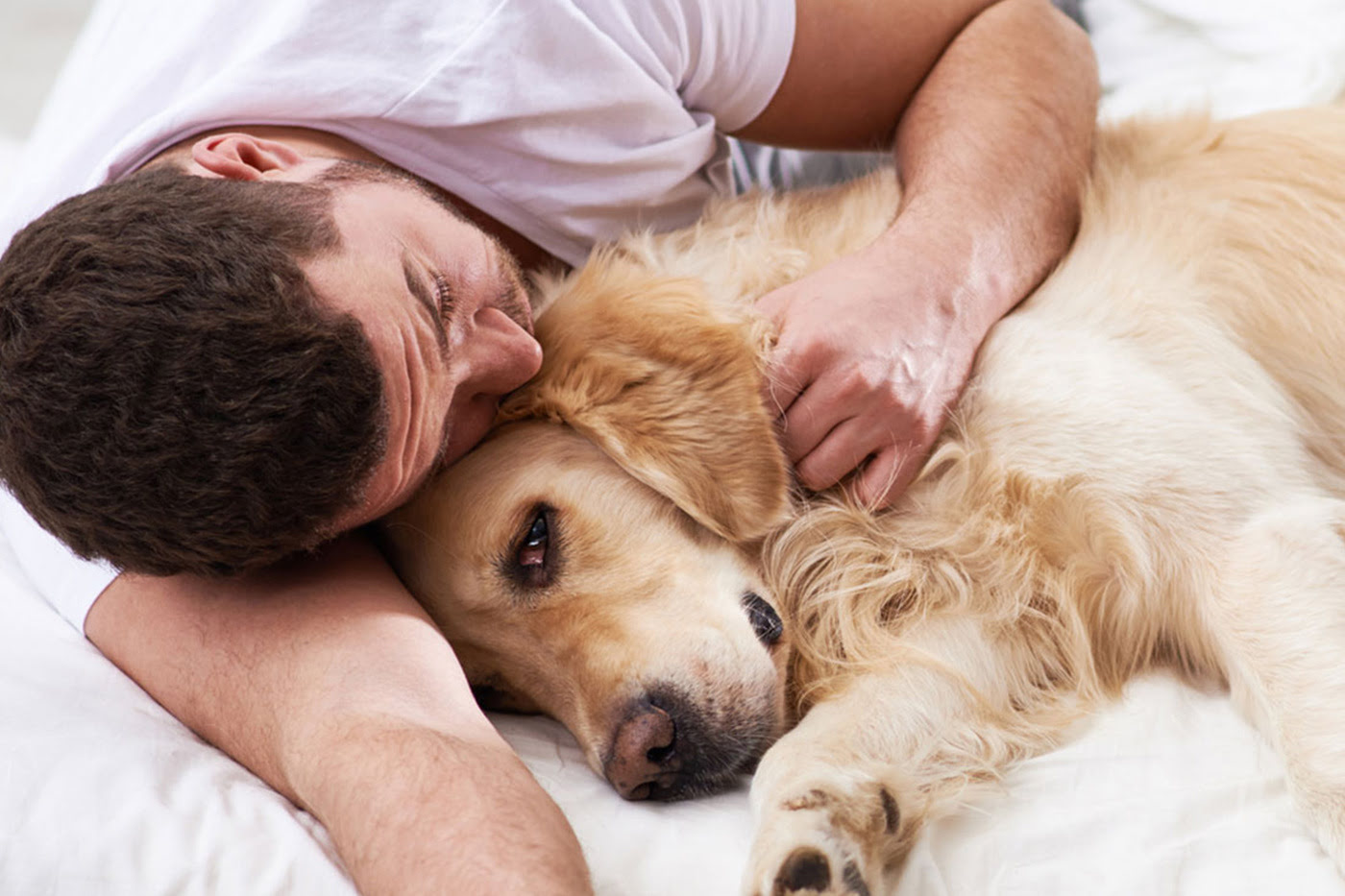Home>Health & Wellness>Common Health Issues>What Happens When A Dog Has Colon Cancer


Common Health Issues
What Happens When A Dog Has Colon Cancer
Published: February 4, 2024
Learn about common health issues in dogs, including colon cancer symptoms, diagnosis, and treatment options. Understand what happens when a dog has colon cancer and how to support their health.
(Many of the links in this article redirect to a specific reviewed product. Your purchase of these products through affiliate links helps to generate commission for Pawsomeoldies.com, at no extra cost. Learn more)
Table of Contents
Introduction
Colon cancer is a serious health concern that can affect our beloved canine companions. Just like humans, dogs can also develop this condition, which can have a significant impact on their well-being. As responsible pet owners, it's crucial to be aware of the signs, symptoms, and treatment options for colon cancer in dogs to ensure their health and happiness.
In this comprehensive guide, we will delve into the intricacies of colon cancer in dogs, shedding light on the various aspects of this condition. From understanding the underlying causes to exploring the diagnostic procedures and treatment modalities, we aim to equip pet owners with the knowledge they need to navigate this challenging situation with their furry friends.
By gaining a deeper understanding of colon cancer in dogs, we can take proactive measures to safeguard their health and provide them with the care and support they need. Let's embark on this enlightening journey to unravel the complexities of colon cancer in dogs and empower ourselves to make informed decisions for the well-being of our canine companions.
Read more: What Happens When A Dog Has Stomach Cancer
Understanding Colon Cancer in Dogs
Colon cancer, also known as colorectal cancer, is a type of malignant tumor that develops in the colon or rectum of dogs. This condition arises from the uncontrolled growth of abnormal cells within the lining of the colon, leading to the formation of tumors that can interfere with normal digestive functions. While the exact causes of colon cancer in dogs are not fully understood, certain risk factors, such as age, genetics, and diet, may contribute to the development of this disease.
The progression of colon cancer in dogs typically begins with the formation of small, benign growths known as polyps within the colon. Over time, these polyps may undergo malignant transformation, giving rise to cancerous tumors that can spread to other parts of the body. The presence of these tumors can obstruct the colon, leading to symptoms such as changes in bowel habits, abdominal discomfort, and weight loss.
Understanding the underlying mechanisms of colon cancer in dogs is essential for early detection and intervention. By recognizing the potential risk factors and being vigilant for signs of this condition, pet owners can take proactive measures to safeguard their dog's health. Additionally, staying informed about the diagnostic procedures and treatment options for colon cancer in dogs can empower pet owners to make informed decisions and provide the best possible care for their furry companions.
As we delve deeper into the complexities of colon cancer in dogs, it becomes evident that this condition can have a profound impact on the well-being of our canine friends. By gaining a comprehensive understanding of the nature of this disease, we can equip ourselves with the knowledge and awareness needed to navigate the challenges associated with colon cancer in dogs. This knowledge serves as a powerful tool in promoting the health and longevity of our beloved pets, ensuring that they receive the care and attention they deserve.
Symptoms of Colon Cancer in Dogs
Identifying the symptoms of colon cancer in dogs is crucial for early detection and prompt intervention. While the signs of this condition may initially be subtle, being attuned to changes in your dog's behavior and physical well-being can make a significant difference in their prognosis and treatment outcomes.
-
Changes in Bowel Habits: Dogs with colon cancer may experience alterations in their bowel habits. This can manifest as diarrhea, constipation, or a combination of both. Additionally, you may notice changes in the size, shape, or consistency of your dog's stool, indicating potential disruptions in their digestive processes.
-
Blood in the Stool: The presence of blood in your dog's stool, which may appear as bright red or tarry black, can be indicative of underlying gastrointestinal issues, including colon cancer. It's essential to monitor your dog's stool for any signs of abnormal discoloration, as this may warrant immediate veterinary attention.
-
Abdominal Discomfort: Dogs affected by colon cancer may exhibit signs of abdominal discomfort, such as persistent pain, bloating, or tenderness in the abdominal region. They may show reluctance to be touched or may exhibit signs of discomfort when their abdomen is palpated.
-
Weight Loss: Unexplained weight loss in dogs can be a red flag for various health concerns, including colon cancer. If your dog experiences a significant and unexplained decrease in body weight despite maintaining their regular diet, it's important to consider the possibility of an underlying medical condition, including cancer.
-
Lethargy and Weakness: Dogs with colon cancer may display general lethargy, decreased energy levels, and weakness. They may appear less enthusiastic about physical activities they once enjoyed and may exhibit signs of fatigue even with minimal exertion.
-
Loss of Appetite: A noticeable decrease in your dog's appetite, accompanied by a reluctance to eat or interest in food, can be indicative of underlying health issues, including colon cancer. Monitoring your dog's eating habits and appetite can provide valuable insights into their overall well-being.
-
Vomiting: Dogs affected by colon cancer may experience recurrent episodes of vomiting, which can be accompanied by other gastrointestinal symptoms. It's important to observe the frequency and nature of your dog's vomiting episodes and report any concerning patterns to your veterinarian.
Recognizing these potential symptoms of colon cancer in dogs empowers pet owners to take proactive measures in seeking veterinary care and diagnostic evaluation. Early detection and intervention play a pivotal role in improving treatment outcomes and enhancing the quality of life for dogs affected by this condition. If you observe any of these symptoms or notice any other concerning changes in your dog's health, seeking prompt veterinary attention is paramount in ensuring their well-being.
Understanding the subtle cues and manifestations of colon cancer in dogs enables pet owners to advocate for their dog's health and provide them with the care and support they need. By remaining vigilant and responsive to changes in their dog's health, pet owners can play a pivotal role in safeguarding the well-being of their beloved canine companions.
Diagnosing Colon Cancer in Dogs
Diagnosing colon cancer in dogs requires a comprehensive approach that encompasses clinical evaluation, diagnostic imaging, and laboratory tests. When a dog presents with symptoms suggestive of colon cancer, the veterinarian will conduct a thorough assessment to determine the underlying cause of the symptoms and establish a definitive diagnosis. The diagnostic process for colon cancer in dogs typically involves the following key components:
Physical Examination
The initial step in diagnosing colon cancer in dogs involves a detailed physical examination by a veterinarian. During this examination, the veterinarian will palpate the abdomen to assess for any abnormalities, evaluate the dog's overall condition, and inquire about the presenting symptoms. Additionally, the veterinarian may inquire about the dog's medical history, dietary habits, and any recent changes in behavior or health.
Read more: What Happens When Dogs Get Cancer
Diagnostic Imaging
Diagnostic imaging techniques, such as radiography (X-rays) and ultrasonography, play a crucial role in evaluating the gastrointestinal tract and identifying potential abnormalities. These imaging modalities allow veterinarians to visualize the colon, rectum, and surrounding structures, enabling them to detect the presence of tumors, abnormal growths, or other anomalies that may indicate colon cancer.
Endoscopy and Biopsy
In cases where diagnostic imaging reveals suspicious lesions or abnormalities within the colon, endoscopy may be recommended to obtain a closer look at the affected area. During an endoscopic procedure, a flexible tube equipped with a camera and light source is inserted into the colon, allowing for direct visualization of the internal structures. Biopsy samples may be collected during endoscopy, enabling the veterinarian to obtain tissue samples for microscopic examination and definitive diagnosis.
Laboratory Tests
Laboratory tests, including blood work and fecal analysis, are essential components of the diagnostic process for colon cancer in dogs. Blood tests can provide valuable insights into the dog's overall health status, assess organ function, and detect potential abnormalities that may be indicative of underlying cancer. Fecal analysis may reveal the presence of blood, abnormal cells, or other markers that can aid in the diagnosis of colon cancer.
Histopathology
Following the collection of biopsy samples, histopathological examination is performed to analyze the cellular composition of the tissue and identify any abnormal changes indicative of cancer. This detailed microscopic evaluation provides crucial information regarding the nature of the lesions, allowing for a definitive diagnosis of colon cancer in dogs.
By employing a multifaceted approach that integrates clinical evaluation, diagnostic imaging, endoscopy, biopsy, and laboratory tests, veterinarians can effectively diagnose colon cancer in dogs and formulate tailored treatment plans. Early and accurate diagnosis is instrumental in initiating timely intervention and implementing appropriate therapeutic strategies to address the condition effectively. Pet owners are encouraged to collaborate closely with their veterinarians throughout the diagnostic process, ensuring that their canine companions receive the comprehensive care and support they need.
Understanding the intricacies of diagnosing colon cancer in dogs empowers pet owners to actively participate in the diagnostic journey and advocate for the well-being of their furry friends. By working in tandem with veterinary professionals, pet owners can contribute to the early detection and management of colon cancer in dogs, ultimately enhancing the prospects for successful treatment and improved quality of life for their beloved pets.
Read more: What Happens When A Dog Gets Tick Paralysis
Treatment Options for Colon Cancer in Dogs
Upon receiving a definitive diagnosis of colon cancer in dogs, pet owners are confronted with the critical task of exploring treatment options to address this challenging condition. The management of colon cancer in dogs necessitates a comprehensive approach that aims to mitigate symptoms, impede disease progression, and enhance the overall well-being of affected canine companions. While the treatment landscape for colon cancer in dogs may vary based on individual circumstances and disease severity, several therapeutic modalities are commonly employed to address this condition.
Surgical Intervention
Surgical resection of cancerous tumors within the colon or rectum is a primary treatment modality for colon cancer in dogs. The goal of surgery is to excise the malignant growths and surrounding tissues to eliminate cancerous cells and prevent further spread. In cases where the cancer has not metastasized extensively, surgical intervention offers the potential for curative outcomes and may significantly prolong the dog's lifespan.
Chemotherapy
Chemotherapy, involving the administration of anti-cancer medications, is frequently integrated into the treatment regimens for colon cancer in dogs. This systemic approach targets cancer cells throughout the body, aiming to impede their growth and proliferation. Chemotherapy may be employed as an adjuvant therapy following surgical resection to eradicate residual cancer cells or as a primary treatment modality in cases where surgery is not feasible.
Radiation Therapy
Radiation therapy, utilizing targeted radiation to destroy cancer cells and shrink tumors, is another valuable treatment option for colon cancer in dogs. This localized approach is particularly beneficial in cases where surgical intervention is challenging or when cancerous growths are positioned in anatomically sensitive areas. Radiation therapy may be employed as a standalone treatment or in conjunction with surgery and chemotherapy to optimize therapeutic outcomes.
Palliative Care
In instances where the cancer has advanced significantly or where aggressive treatment may pose undue stress on the dog, palliative care plays a pivotal role in managing symptoms and enhancing quality of life. Palliative interventions, such as pain management, dietary support, and emotional nurturing, aim to alleviate discomfort and promote the dog's overall well-being, ensuring that they receive compassionate care throughout the course of their illness.
Integrative Therapies
Complementary and integrative therapies, including acupuncture, herbal medicine, and nutritional supplementation, may be incorporated into the treatment approach for colon cancer in dogs. These holistic modalities are designed to support the dog's physiological and emotional resilience, alleviate treatment-related side effects, and enhance their overall vitality.
By embracing a multifaceted treatment approach that encompasses surgical intervention, chemotherapy, radiation therapy, palliative care, and integrative therapies, veterinarians strive to optimize the management of colon cancer in dogs and improve treatment outcomes. Each treatment modality is tailored to the unique needs of the individual dog, taking into account factors such as disease stage, overall health status, and the pet owner's preferences. Collaborative decision-making between pet owners and veterinary professionals is instrumental in formulating a comprehensive treatment plan that prioritizes the well-being and comfort of the canine patient.
Understanding the diverse treatment options available for colon cancer in dogs empowers pet owners to make informed decisions and actively participate in the care and support of their beloved furry companions. By leveraging the insights and expertise of veterinary professionals, pet owners can navigate the complexities of treatment and provide their dogs with the compassionate care they deserve, fostering hope and resilience throughout the journey of managing colon cancer in dogs.
Prognosis and Life Expectancy for Dogs with Colon Cancer
The prognosis and life expectancy for dogs diagnosed with colon cancer are influenced by various factors, including the stage of the disease, the effectiveness of treatment, and the overall health status of the affected canine. Understanding the potential outcomes and prognostic indicators is essential for pet owners as they navigate the complexities of managing colon cancer in their beloved dogs.
In cases where colon cancer is diagnosed at an early stage and surgical intervention is feasible, the prognosis may be relatively favorable. Surgical resection of localized tumors offers the potential for curative outcomes, particularly when the cancer has not metastasized extensively. When combined with adjuvant therapies such as chemotherapy or radiation, the prospects for long-term survival and an improved quality of life for the dog are significantly enhanced.
However, in instances where colon cancer is diagnosed at an advanced stage or has metastasized to distant organs, the prognosis may be more guarded. Advanced cancer may pose significant challenges in terms of treatment response and disease management. In such cases, the primary focus shifts towards palliative care aimed at alleviating symptoms, enhancing comfort, and promoting the dog's overall well-being.
The life expectancy for dogs with colon cancer is inherently variable and depends on the individual circumstances of each case. Factors such as the aggressiveness of the cancer, the presence of concurrent health issues, and the dog's response to treatment all play a crucial role in determining the anticipated lifespan following a diagnosis of colon cancer.
While it is natural for pet owners to seek clarity regarding their dog's prognosis and life expectancy, it's important to approach these considerations with a balanced perspective. Veterinary professionals, drawing upon their expertise and experience, can provide valuable insights into the anticipated outcomes and guide pet owners in making informed decisions regarding the management of colon cancer in their dogs.
Ultimately, the prognosis and life expectancy for dogs with colon cancer are deeply intertwined with the dedication and support provided by pet owners. By collaborating closely with veterinary professionals, remaining attuned to their dog's needs, and advocating for comprehensive care, pet owners can positively influence the prognosis and enhance the quality of life for their canine companions throughout the journey of managing colon cancer.
Understanding the nuanced interplay of prognostic factors and embracing a proactive approach to care empowers pet owners to navigate the complexities of colon cancer with resilience and compassion, fostering hope and well-being for their beloved dogs.
Conclusion
In conclusion, the journey of understanding and addressing colon cancer in dogs is a multifaceted endeavor that demands vigilance, compassion, and informed decision-making from pet owners. By delving into the intricacies of this condition, we have gained valuable insights into the underlying mechanisms, symptoms, diagnostic approaches, treatment modalities, and prognostic considerations associated with colon cancer in dogs.
As responsible pet owners, it is paramount to remain attuned to the subtle cues and manifestations of colon cancer, recognizing the potential symptoms and seeking prompt veterinary attention when concerns arise. Early detection and intervention play a pivotal role in improving treatment outcomes and enhancing the quality of life for dogs affected by this condition.
The diagnostic journey for colon cancer in dogs involves a comprehensive approach that integrates clinical evaluation, diagnostic imaging, endoscopy, biopsy, and laboratory tests. By collaborating closely with veterinary professionals and actively participating in the diagnostic process, pet owners can advocate for their dog's health and well-being, ensuring that they receive the comprehensive care and support they need.
Exploring the diverse treatment options available for colon cancer in dogs, including surgical intervention, chemotherapy, radiation therapy, and palliative care, underscores the importance of tailored and compassionate management. By embracing a multifaceted treatment approach, pet owners can navigate the complexities of addressing colon cancer in their dogs, fostering hope and resilience throughout the journey of managing this challenging condition.
Understanding the nuanced interplay of prognostic factors and embracing a proactive approach to care empowers pet owners to positively influence the prognosis and enhance the quality of life for their canine companions. By remaining dedicated to the well-being of their dogs and collaborating closely with veterinary professionals, pet owners can navigate the complexities of colon cancer with resilience and compassion, fostering hope and well-being for their beloved pets.
In essence, the journey of addressing colon cancer in dogs is a testament to the unwavering bond between pet owners and their furry companions. By leveraging knowledge, compassion, and collaborative care, pet owners can navigate this challenging terrain with resilience, ensuring that their dogs receive the care, support, and advocacy they deserve throughout the journey of managing colon cancer.
